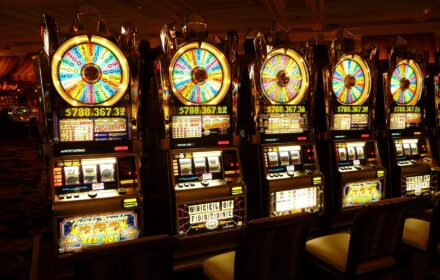Why do online casinos need a license? The certificate forms the legal foundation without which the operator’s legal operation in international jurisdictions is impossible. The permit document ensures the compliance of the gambling company with the law of the country where the registration takes place. Without it, the operator cannot legally accept deposits, process withdrawals, and provide access to gaming content.
Unlicensed casinos have no legal obligations to their clients. Lack of transparency in the rules leads to abuses: unjustified account blocks, delays in fund withdrawals, manipulations with RTP (return to player percentage), and RNG (random number generator). A licensed casino is required to conduct an annual audit, provide open reports, and undergo verification by regulators. This eliminates the grounds for fraud and strengthens the platform’s reputation in the market.

In 2024, only 9% of players trusted unlicensed operators. The remaining 91% chose licensed casinos, demonstrating a high demand for legality and protection.
Regulator – Guarantor of Rules
The regulator’s function goes far beyond issuing an online casino license. The supervisory body checks the entire platform’s mechanism of operation: fairness of payouts, support service performance, verification processing speed, data security level. The regulator sets clear standards – from a minimum RTP of 94% to mandatory encryption of user information using TLS 1.2 protocol and above.
Among the most authoritative regulators in the gambling industry are the Malta Gaming Authority (MGA), UK Gambling Commission (UKGC), Isle of Man Gambling Supervision Commission. A casino licensed by the MGA, for example, undergoes regular audits by independent organizations, including eCOGRA and iTech Labs. They test the RNG and publish deviation indicators – the acceptable maximum is 0.5%.
Why do online casinos need a license: having such a document ensures transparency for players, predictability of gaming algorithms, and access to support in case of disputes.
Control through Verification and Audit
 Licensed casinos use identity verification as a tool to protect players from fraud, money laundering, and multi-accounting. Document verification, address verification, and source of income checks comply with anti-money laundering laws (AML/KYC). This excludes access by minors and protects the market from gray capital.
Licensed casinos use identity verification as a tool to protect players from fraud, money laundering, and multi-accounting. Document verification, address verification, and source of income checks comply with anti-money laundering laws (AML/KYC). This excludes access by minors and protects the market from gray capital.
On the other hand, an audit serves a different purpose: it checks finances and technology. In 2023, over 1700 online casinos underwent independent RNG certification. Based on the analysis of sessions in 1 million spins, a deviation coefficient from the declared RTP is formed. In case of exceeding the permissible thresholds, the regulator suspends the license.
Without these procedures, a player cannot be sure of the fairness of roulette, cards, slots. Why do online casinos need a license in this aspect: the document transforms dubious gaming into a regulated service with understandable algorithms and feedback.
Types of Licenses and Their Differences
Different countries offer various levels of protection and requirements for operators. To understand why online casinos need a license, it is important to distinguish the main types of documents:
- MGA (Malta). European jurisdiction with high transparency, suitable for international brands. Mandatory annual audit, player protection, mandatory site localization.
- UKGC (United Kingdom). One of the strictest, requires tax transparency, prohibits bonuses for dependent users, and sets limits.
- Curacao eGaming. More cost-effective, but with simplified control. Suitable for startups and young operators.
- Isle of Man. Used for VIP platforms and high-roller casinos, the license supports crypto payments.
- Gibraltar Gambling Commission. Supports operations in European and Asian markets, requires offices and customer support in the jurisdiction.
Legal licensed casinos publish the license number in the site footer. A player can verify its authenticity on the official regulator’s website.
How to Check an Online Casino License and Why It Is Needed?
Checking the license is a mandatory step before registration. The authenticity of the document can be easily confirmed by the registration number. For example, an MGA license may look like MGA/B2C/174/2009. Verification is done through the Malta Gaming Authority website in the Licensee Register section. The information includes the license status (active/suspended), date of issue, type of services, and operator name.
Licensed casinos display the regulator’s logo in the site footer. Clicking on it opens a verified document with details. If the site does not provide a number or the page is unavailable, it signals distrust.
Additionally, it is important to check for: HTTPS encryption, types of currencies and payment methods, support activity. Legal platforms work with VISA, MasterCard, Skrill, and process withdrawals within 24-48 hours.
Advantages of Playing at a Licensed Casino
Choosing a licensed platform provides the player not just with security but a comfortable and stable gaming process with legal guarantees. Among the key advantages that define why online casinos need a license:
- Fair payouts. The platform commits to processing transactions according to a fixed schedule.
- RTP control. Independent labs verify compliance with the declared return percentage.
- User support. Licensed casinos provide multilingual 24/7 support service.
- Legal protection. In case of a conflict, a player can file a complaint with the regulator.
- Trust and reputation. Licensed casinos enter ratings and receive positive reviews.
- Bonus transparency. All promo conditions are available before activation, with wagering requirements specified.
- Responsible gaming. Casinos offer self-limitation tools: daily limits, self-exclusion, timeouts.
These parameters shape a market where the player interacts with the platform as a service, not as a random gambling risk.
Risks of Unlicensed Platforms
The absence of an online casino license turns the user into a hostage of the platform’s internal rules. Without a regulator, the operator independently sets limits, coefficients, and the procedure for handling complaints. Practice shows: 7 out of 10 player complaints about delayed withdrawals or unjustified deductions are related to unlicensed casinos.
Such platforms often use scripts with manipulated RNG, increase commissions, require paid verification, or outright block accounts when attempting to withdraw winnings. There is also an increased risk of personal data leakage: lack of encryption, outdated CMS, unencrypted document transmission.
Legality excludes such schemes. The regulator controls the technological base, maintains minimum requirements for code, hosting, and traffic management. This ensures transparency and stability.
Market and Regulatory Perspectives
The global gambling market in 2025 exceeded $127 billion in revenue, with 38% coming from online casinos. Jurisdictions are tightening requirements for operators. New rules on advertising, data protection, and deposit limits have been introduced in the EU. This pushes brands to obtain certification in reliable zones and create a legally safe environment for players.

Why do online casinos need a license – it is no longer a matter of choice but a condition for survival. In an environment of increasing competition and player awareness, operators neglecting licensing are losing ground. The platform’s rating directly depends on the document’s status, and international partners and providers (such as NetEnt, Microgaming, Evolution) only collaborate with verified casinos.
Why Online Casinos Need a License: Protection, Not Formality
 Why do online casinos need a license? The document regulates rules, confirms transparency, protects players’ interests, and keeps the market away from shadow schemes. The regulator sets RTP standards, controls payouts, verifies algorithms, and eliminates fraud. In licensed casinos, players receive clear regulations, access to support, legal protection, and guaranteed fairness. This builds trust, ensures stable gameplay, and reduces risks.
Why do online casinos need a license? The document regulates rules, confirms transparency, protects players’ interests, and keeps the market away from shadow schemes. The regulator sets RTP standards, controls payouts, verifies algorithms, and eliminates fraud. In licensed casinos, players receive clear regulations, access to support, legal protection, and guaranteed fairness. This builds trust, ensures stable gameplay, and reduces risks.
 en
en  de
de  ar
ar  es
es  nl
nl  hi
hi  fr
fr  it
it  pt
pt  el
el 










